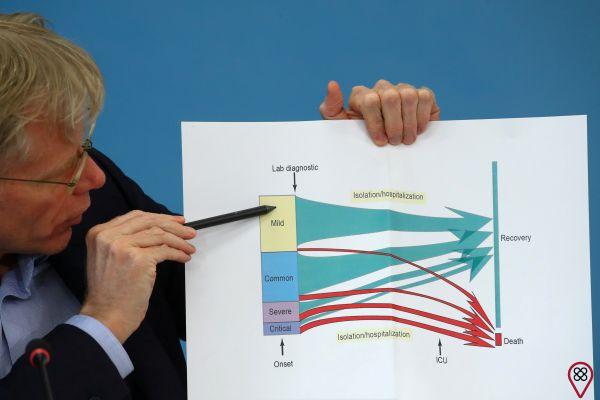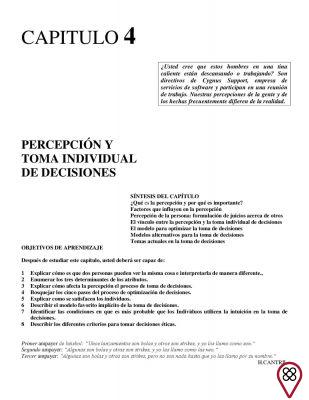“Do not make an effort to work, nor to renounce work. Your effort is your bondage.”
The above sentence is attributed to the Indian sage Ramana Maharshi and I feel that it inspires me so much that I could end this text here.
Work, these days, has basically two connotations: a sanctified one, which most feel is an impossible place to reach (think: mission, purpose) or a cursed one, which carries an enormous weight (think Sunday night) and zero Realization.
The sanctified work or vocation
On sanctified work, as I said earlier in this text, “For Max Weber, the idea of vocation was introduced with the Protestant Reformation. Vocation would be, first of all, a way of projecting religiosity in everyday acts.
Furthermore, considering the notion of predestination and that God already had his chosen ones or the practice of good works, it would be a way of showing that one belonged to this class. And, above all, to make riches through a vocation would be proof of divine blessing. Getting rich was “excused” for having been achieved through a vocation.”
Redefining work through a middle ground
In the book “Creating the Work You Love”, Rick Jarow calls work that suffers from pressure and struggle for status a “career” and talks about a middle ground in which we feel fulfilled and, at the same time, with the feeling that we are contributing for that and that it doesn't weigh as the question of the mission, of anti-career. This, in turn, aims to 'create the space and make the internal preparation that will allow your dharma to find you'. According to Deepak Chopra, dharma is following our purpose, our path, our joy. It is being aligned with the flow.

The anti-career entails both individual work, which also ends up leading to the transformation of the world and of the individual, as well as collective work, since, to be carried out, it depends on joint work. There is no anti-career without interdependence.
For this, he claims that four essential qualities are necessary:
1) “Vibrant and dynamic energy” – fire element
It is that energy or investment (in the form of money, time, attention, and imagination) that, when focused, will be applied constructively when you are drawn to work that inspires. When she's not there, though, there's a feeling that no matter what your position or whether your salary isn't enough, you'll always look for other compensation through drinking, for example.
You might be wondering how you're going to manifest that kind of energy if your work is sucking all the energy out of you. That's why, before talking about these qualities, the book teaches chakra alignment techniques, otherwise we fall into "soulless money", which is the current problem. We have already spoken here several times about the importance of harmonizing bodies and, about this, there is no miracle: it is the internal that will be manifested in the external.
About chakra alignment, Jarow says: “If your focus is not aligned with the drive of your being, you find yourself stuck in a quagmire of obsessions, deviance, and workaholism syndromes that require the amputation of part of yourself. as a condition for success.”
2) Discipline
I have already mentioned in other texts that discipline is the opposite of laziness. For there to be discipline, which Jarow calls “applied intelligence” and which involves commitment, consistency and versatility (air element), there must first have been the energy above or the fire.
If the discipline appears within a framework of chakra misalignment, so that feeling and will are out of step, this imbalance will appear in another way, attracting, for example, partners with the quality you need to work on.
It is the discipline that will allow us to continue to invest in our work, even when things are not going so well. Jarow says: “Discipline, the constant pursuit of your project, creates a thick skin that is able to resist rejection.” In addition, through it, the work itself becomes the reward.

In that same text, he talks about the importance of having a mentor. Thus, it is worth remembering the relevance of coaching for people for whom the discipline is not something easy to achieve, since the process provides a follow-up of measurable goals, with a date to happen.
3) Serve
Serving, in this context, is related to the quality of anti-career interdependence.
An important distinction Jarrow makes in this chapter is that of serving with a negative (servile), guilty connotation, of serving that comes from an overflowing heart, authenticity, gratitude, and a desire to share gifts; a service that does not overload and that allows personal and professional lives to be in balance.
An example he offers to clarify this difference is selling just with the intention of making money versus selling with the intention of sharing something I believe in or that excites me and, mainly, selling with the objective that that good will bring something positive for someone. Understanding that all exchange, whether of services or goods, is sacred because it is related to interdependence. That is, what I sell affects the whole, including me.
Another example is marketing, which starts from a vision of abundance rather than one of scarcity (“ends today”, “last day”, etc.).
I personally replaced the word “serve”, which had a weight for me, with the word “contribute”, which is what I feel is the main verb of this new era.
4) Multipotentialities and interactive management
As mentioned earlier, authenticity is one of the qualities related to anti-career. We change all the time, we have different interests and the fact that we are true to ourselves will reflect this.
This diversity can be either of areas or of a single interest that is applied in several directions. It also means decentralizing, that is, focusing on what you are good at and what makes you happy and letting other people do what makes them happy.

As nature gives us an infinity of options for food, it should also be our portfolio. Jarrow says that nature never loses a job, because she has millions of jobs to fill!
This chapter also addresses interactive management, a working model with 'systems that promote the alignment between love and work', redirecting resources and consumption.
In this sense, not only what we do is important, but how we do it and, above all, where we do it. As it is for Ayurveda, for Jarrow where you are exponentially influences the results. Interactive management also implies balancing sleep, food, sex, exercise, that is, having a harmonized “wheel of life”.
Where to start?
Well, I know that looking at it all together seems like something out of our reach. I'm going to give you a coaching tip right away: break the big tasks into small pieces, so that the thing looks doable!
Which of these four qualities (or keys) can you start with? You can, for example, print a “Wheel of Life” and start there.
More: you may suddenly realize that you are already doing a little bit to activate each of the qualities. I'll give you an example from my own life: at the time, my Ayurveda doctor decided to work the fire (agni) in my digestion with a simple mixture of turmeric, ginger and honey before meals.
Because the anti-career is holistic, I know that tending to the fire in my digestion will affect other areas of my life. The other day, the doctor posted that the lack of fire translates into slow digestion not only of food, but of emotions as well; and I also know that it will affect (and is already affecting) my “will”, because I feel much more productive.
As Ayurveda has several routines, mainly in the morning, this is giving my life discipline. Also, from the perspective of Anthroposophy, I know that the discipline works on the etheric body, therefore it gives energy.
- Estudos da Cabala: Shabbat Beshalah
- Vocation and self-growth
- Comparing the ideas of dharma, vocation and meaning
- Effective action management
As for serving, this is a very pressing issue in my life, especially now in the pandemic. I got a mentor and I've been dropping the question to the Universe every day: "How can I contribute in this new era?"
This mentor is also helping me with item four, which is the question of directing my potential. Regarding international management, I have tried to listen to indigenous peoples (knowledge like those transmitted by Airlton Krenak) and other people who have this view that everything influences everything.
I sincerely hope that this text inspires you to get started.

























